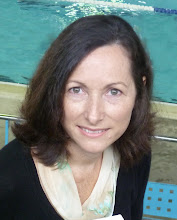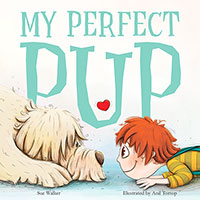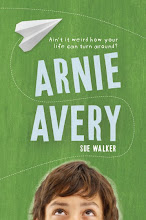Currently, I'm guest editor for BOOK BEAT - a Children's Book Council newsletter. Often I'll include a writing tip or exercise in BOOK BEAT, so I thought I'd post a collection of them here. I hope to add more in the coming months.
Tip # 1: Improve your writing with word pictures
Sometimes when we’re reading a book, it’s almost as if we’re watching a movie. The author uses words that help us to see the story. Try reading this extract from Deb Abela’s latest book Grimsden, and you’ll understand.
“Sneddon looked into a small, rounded mirror and ran his hands along either side of his hair, sweeping it upwards into a smooth, wave-like quiff.”
Did you see Sneddon fussing with his hair? Descriptions or ‘word pictures’ like this make reading fun. They help us to create pictures in our minds so that we become involved in the story.
Activity: Find an interesting picture of a person in a magazine and write a description of that person using word pictures.
Tip # 2: Taking a Look at DialogueWhat is dialogue? If you open any novel, you’ll find it. It’s the parts of the story where the characters speak to each other, and it looks like this:
“I mean it, Arnie. You need some sparring practice,” said Belly. He nodded fast. “I can teach you.”
Now it was my turn to laugh. “What? You?”
“Yeah, me. Dad used to be a boxer, you know.”
Dialogue helps to make our stories interesting, but it should give us new information and move the story forward. It should draw us in and help us get to know the characters. Here are some tips to improve your dialogue:
1. Listen to people talking. Dialogue is a cut down version of real conversation – just the interesting bits.
2. Read your dialogue out loud to see how it sounds. Would real people speak that way?
3. Try to break up your dialogue with small pieces of action to make it easier to read. Take another look at the example above – he nodded fast, and Now it was my turn to laugh are pieces of action (the characters are doing something).
4. Your dialogue should have purpose. Maybe your characters could befriend someone, reveal a secret, argue or tell a lie. It’s your job to make something happen!
Activity: Choose a partner and write a conversation between two characters. Takes turns writing a sentence of dialogue each, beginning with:
“You’ll never guess what happened.”
 I am thrilled to announce that Arnie Avery is the WINNER of the 2011 Children’s Peace Literature Award.
I am thrilled to announce that Arnie Avery is the WINNER of the 2011 Children’s Peace Literature Award.












 When the teacher handed out all the new books - there was the flying shark, just like in the catalogue, all shiny and new. I'd never been so excited about a book in my life, and I read every single word. I'm sure that book turned me into a reader...and I hope that some of the students at Willmot are turned into readers after their experience today.
When the teacher handed out all the new books - there was the flying shark, just like in the catalogue, all shiny and new. I'd never been so excited about a book in my life, and I read every single word. I'm sure that book turned me into a reader...and I hope that some of the students at Willmot are turned into readers after their experience today. 









